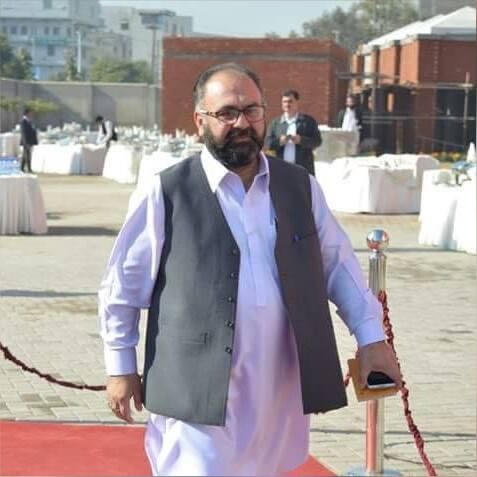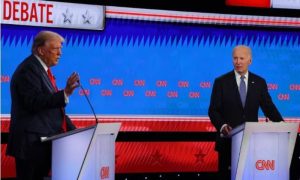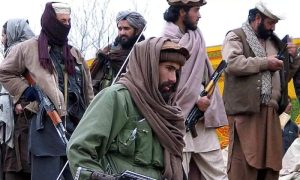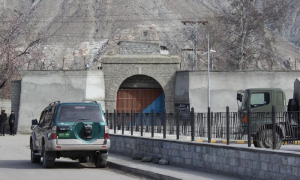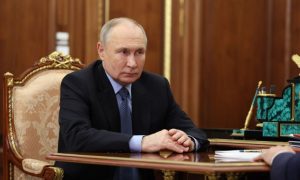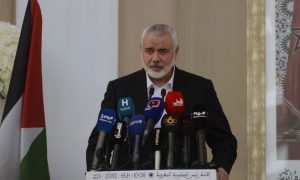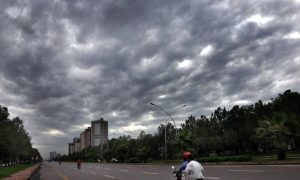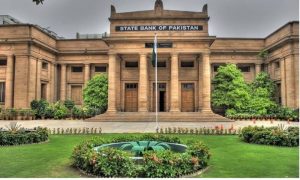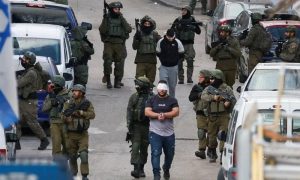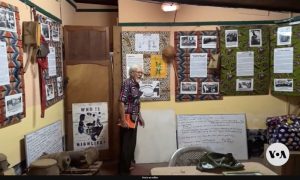The uncertain political scene in Khyber Pakhtunkhwa is not different than the rest of the country, where political parties are flexing their muscles to gain a major share in the future power structure.
The political forces are facing multifaceted challenges in the KP as how to regain their lost support bases from the former ruling party – Pakistan Tehreek-e-Insaf, take the lead from allied parties, how do they continue their political campaigns ahead of the national elections, if announced this year.
A more serious challenge for the political parties is how to reach out to the public as the caretaker government of KP has banned political campaigns, including holding of rallies and public meetings in the province and restive tribal districts along the Afghan border after the deadliest terrorist attack in the district of Bajaur on July 30.
The so-called Islamic State of Khorasan Province or Daesh Khorasan claimed the suicide bombing in a public meeting of Jamiat Ulema-i-Islam –Fazlur Rehman, where nearly 50 people lost their lives and more than 200 injured. The tragedy was widely condemned by everyone here and also abroad. Afghan Taliban also condemned the terrorist attack, offering condolences to the bereaved families.
The anger was natural in the people of district Bajaur, where there were funerals at every nook and corner of the district. Many people were raising questions as to why a major religious, political party like JUI-F was targeted. The worst kind of attack in recent months, where over a dozen clerics associated with the JUI were targeted in Bajaur in a year or so. One reason as explained by some of the analysts and workers of the JUI as they were opposing the ISKP or Daesh Khorasan in the district. However, the leaders of JUI termed the suicide attack as an attack on Islam, Pakistan, and democracy.
The political divide across the line with the surge in violence pose a serious challenge
This is not something new to have violence in politics, but in the past, mostly the anti–militancy secular political parties, like Pakistan People’s Party, Awami National Party, and others, were targeted. However, this time a religious political party was attacked. The blast in the JUI-F meeting and another attack on the Amir of Jamaat-e-Islami Sirajul Haq in Balochistan several weeks ago reflects a worrisome situation.
The ruling alliance of Shahbaz Sharif-led PDM is also divided over a number of issues ahead of the ending of the term of the national assembly and future interim setup. Some analysts suspect holding the timely elections this year, but the issue could be unfolded shortly.
The political scenario reflects a grim picture of how the elections could be held peacefully and who will get the major share if the elections are held this year. The credibility of the caretaker government in KP is also questioned, not only by the opposition but also by the ruling coalition partners.
Governor of the KP Haji Ghulam Ali, who is from the JUI-F, is being criticized for his role in pre-polls rigging and creating an environment for his party.
ANP, PPP, and PML-N provincial leaders have been alleging the governor is using his influence to support his party and the governor’s house is being used as his party office.
The interim provincial government was said to be holding elections within 90, as mandated by the constitution, but that did not happen. The ministers were taken on a political basis as representing parties of the coalition – PDM. The acting ministers were included in the cabinet from JUI-F, ANP, PPP, and PML-N.
After mum over the issue, the Election Commission has taken notice of the politically affiliated ministers in the interim cabinet and asked the caretaker government to de-notify such ministers having political links. However, some of analysts are raising the questions why the Election Commission took the notice so late? Why was it remained silent for months on this issue?
How that could be possible for the political parties to run their campaigns for the next elections in the prevailing security environment? It could be possible but more security forces personnel would be deployed in the KP and former FATA districts. To avoid maximum losses, the political parties should agree on a code of conduct to run their campaigns in the day light and also indoor meetings than outdoor to reduce the risk.
Who could be ruler of the KP?
The political scenario is unclear and no political party in the KP is in a position to claim a clear cut majority, if elections are being held. A serious setback to the former ruling party – PTI has been facing to intact its members, as a major chunk of the former elected parliamentarians left the party and joined a faction of PTI-Parliamentarian led by the former Chief Minister and defence minister Pervez Khattak. Will it make any difference to attract the voters of the PTI or Imran Khan followers?
In some parts of the province, the breakaway faction of PTI may divide the votes of the Imran Khan as the other leaders who still support Imran Khan are either on the run or facing court cases.
No doubt, Imran Khan led PTI support base is intact and also the sympathy votes, his party could get, if fair and free elections were held. Sometimes the picture is otherwise than what has been anticipated in the electoral politics.
The ruling coalition parties seem to go into the polls independently, except some seat adjustments or local alliances. PPP and PML-N are struggling to take their share, whereas JUI-F and ANP are at loggerhead.
JUI-F is enjoying its base, and many political workers and leaders have been joining it. If JUI-F could not get a major share, at least it could retain its position. JUI could attract the anti-Imran Khan and PTI votes.
ANP is facing challenges from within the party leadership and divisions at the district level that have pushed it back in the run to regain its lost position. Some senior leaders have switched sides, like the former provincial minister from Swat, Wajid Ali Khan, which put its position uncertain in the coming elections. The de-notifications of two ministers of ANP from the caretaker cabinet also put the party leadership under pressure.
Jamaat-e-Islami Pakistan, which has lost its strong districts in Malakand division, is trying hard to win back and become relevant in the future parliamentary politics. A recent power show in Chakdara, Malakand was seen as an indication that it could get some of its seat back or if it goes in alliance with PTI, a possibility, it could win more seats in the province. Senator Mushtaq Ahmad is a powerful voice in the Senate and has been raising every single issue of the people KP, he may be good to attract some neutral votes.
Aftab Ahmad Khan Sherpao, Chairman of Qoumi Watan Party and a seasoned politician, has lost his grip with very little chance to make a difference. The political landscape of the KP has been changed and new faces and players have been active in the politics. Who could win the coming polls is a question like holding of the polls, and then fair and free.









